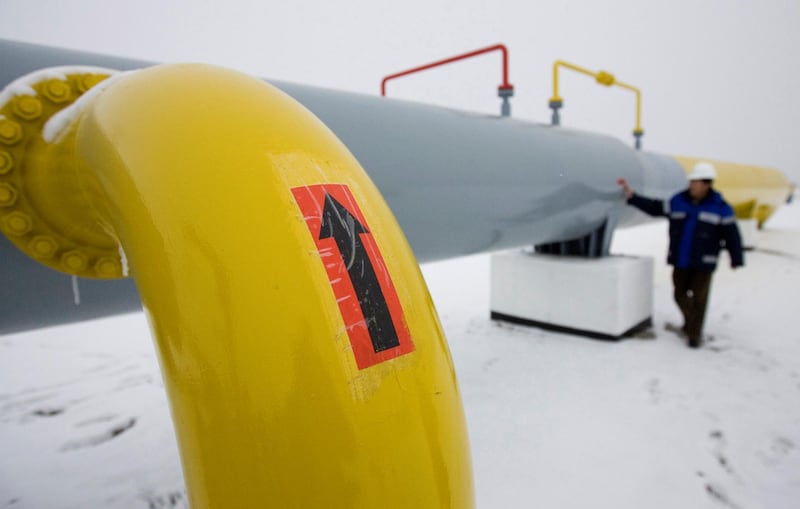On its website, Total calls its Yamal liquefied natural gas project in Arctic Russia, “the gas that came in from the cold”.
The reference to John Le Carré’s spy novel is apt given the poisoning in the UK last Sunday of Sergei Skripal, a former Russian agent. Russia’s recent gas deals have given it greater reach while raising more fears over its geopolitical influence.
Yamal, a joint venture between Total, Novatek, Russia’s largest non-state gas producer, and Chinese firms, began deliveries in December, the first time Russian gas was exported other than by national gas champion Gazprom. In January, it contributed to a tanker to Boston. Despite the US’ talk of “energy dominance”, New England lacks sufficient pipelines and cannot take deliveries of abundant LNG from the Gulf of Mexico coast due to the absurd Jones Act, a 1920 relic requiring the use of (non-existent) US tankers.
Some cold winters, economic revival, declining indigenous gas output and the closure of coal power stations have led to rising European gas imports from Russia since 2014. In early March, a Siberian chill brought heavy snow to Britain, and, as gas prices reached their highest level for 12 years, it was followed by another tanker from Yamal.
In late February, the Stockholm arbitration court ordered Gazprom to pay Ukraine’s Naftogaz $2.56 billion for failure to deliver gas following Russia’s annexation of Ukraine and its backing of separatists in the eastern Donbass region. In response, Gazprom did not restart gas supplies to Ukraine, during a cold winter, and said it would begin cancelling its contracts with the country.
Gazprom has long been seeking to bypass Ukraine as its main transit route to Europe after a series of politically-charged disputes over prices. The Nord Stream 1 pipeline, under the Baltic from Russia to Germany, began operations in 2011. Turkish Stream, across the Black Sea, is under construction. The planned Nord Stream 2 is currently the subject of intense debate in Europe, opposed by Poland and the Baltic states but supported by Berlin. Former German chancellor Gerhard Schröder chairs both Nord Stream and Rosneft’s board.
On the same day as the Ukraine judgement, ExxonMobil was forced by US sanctions to quit joint ventures with Rosneft in the Arctic and Black Sea, projects it entered under former chief executive and now US Secretary of State Rex Tillerson.
The EU has sought to strengthen itself against fears of over-dependence on Russia. The US has trumpeted its LNG exports, which can reach new import terminals in Poland, Lithuania and that planned in Croatia. New pipelines connect these with inland markets and also enable Russian gas to be resold into Ukraine via Slovakia, preventing Gazprom from selectively cutting off Kiev. The European Commission has pressed the Russian company to allow resale of its gas to any market, and to make prices more competitive.
_______________
Read more:
Oil majors get serious on 'new energy' investments
Oil beyond 2018: what lies ahead for 'Super Opec'
_______________
At the same time, Gazprom is under pressure at home, challenged by Novatek for LNG exports and in its domestic market by Rosneft and independent producers. Rosneft also seeks to export gas from east Siberia to China. But ultimately, close associates of Vladimir Putin – Igor Sechin at Rosneft and majority shareholder Gennady Timchenko at Novatek – ensure these companies follow the Kremlin’s dictates.
As a would-be great power, Russia has few cards to play. Its civilisational model is unattractive except to a few nationalist extremists. Its one-track economy is barely the size of the Benelux countries, while Germany and France together outweigh it in population. Russian interference in the US presidential elections, its encouragement of the UK’s vote for Brexit, the poisoning of Mr Skripal, its backing of the Assad regime in Syria, its anti-shale gas campaigns through environmentalist surrogates, and its sponsoring of numerous influential western political and business figures, underline that Moscow’s skills are in spreading dissension and disruption.
It is, however, a heavyweight diplomatically, militarily and in energy, the world’s largest gas exporter and on par with the US and Saudi Arabia as the biggest oil producer. Its huge geography gives it a reach and access to markets even beyond the gross output figures.
Recent deals to build nuclear power plants in Saudi Arabia and Egypt, to export Kurdish gas, and the increasing formalisation of its ties with Opec, extend its influence in the Middle East. The EU’s relations with Turkey, the key transit state athwart the routes from the Middle East, eastern Mediterranean and Caspian, have grown chilly, while Gazprom builds Turkish Stream. Even while individual Russian companies seek profitable deals, Moscow’s interests, unlike China’s, are to diminish, delay and divert competing sources of oil and gas.
Europe’s energy security has improved significantly since the Russia-Ukraine gas crises of 2009 and 2014. More pipeline connectivity, more LNG terminals and a tougher line on Gazprom’s commercial deals have helped. Connections across the Pyrenees, into the Balkans and to the Baltic states are still insufficient.
Beyond that, the EU needs to speed up deploying renewable energy, keep existing nuclear plants running, and develop its own shale gas, at least as a warning to Russia even if not on a large scale. It should be a decisive player in its neighbouring potential gas suppliers, rather than leaving it up to the US and Russia.
But most of all, as it and the US should now know, no amount of gas assures energy security if the political and financial systems are compromised.
Robin M Mills is CEO of Qamar Energy, and author of The Myth of the Oil Crisis





